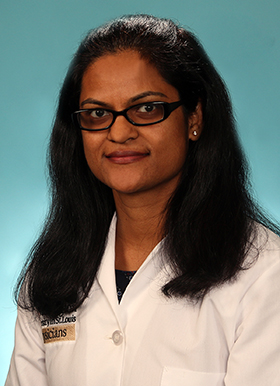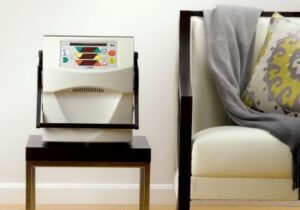
Congratulations to Manasa Metireddy, MD, Assistant Professor of Medicine, Division of Nephrology, who is the recipient of a Project Award from The Foundation for Barnes-Jewish Hospital. Dr. Metireddy received the three-year, $419,377 award to study transitional care for dialysis patients.
Patients with end stage kidney disease (ESKD) face challenges in the early months of initiating dialysis. Clinical outcomes such as cardiovascular disease and catheter-related infections are leading causes of hospitalization and mortality in the first 90 days of dialysis initiation.
“ESKD patients and their families experience increased stress during the first few weeks of dialysis, likely related to the trauma of dialysis initiation along with unexpected lifestyle changes,” says Metireddy.
A lack of patient education about kidney disease and available treatment options – in particular, home dialysis – remains the biggest barrier to improving outcomes. Metireddy, along with colleagues Anubha Mutneja, MD (@AnubhaMutneja), and Marcos Rothstein, MD (@NephroMaven), are focused on closing this educational gap through an established Transitional Care Unit (TCU).
“Our central hypothesis is that starting a TCU for incident hemodialysis patients will provide better acclimatization to dialysis initiation and lead to improved outcomes in terms of hospitalizations, re-admissions and mortality, along with a higher uptake of home dialysis,” says Metireddy, who is the Medical Director of WashU Nephrology Home Modalities. “Those who ‘crash’ into dialysis and lack enough support and/or education to make informed health care decisions are the most vulnerable patients with poor clinical outcomes and, hence, the target of our project.”
The TCU will take selected incident dialysis patients through a four-week program designed to initiate gentle and more frequent dialysis, and provide them with valuable information about kidney failure, different dialysis modalities, diet, dialysis access and transplantation, as they slowly transition into their new life.

Follow Drs. Mutneja @AnubhaMutneja and Rothstein @NephroMaven on Twitter. Keep up-to-date with WashU Nephrology on Twitter and Facebook.